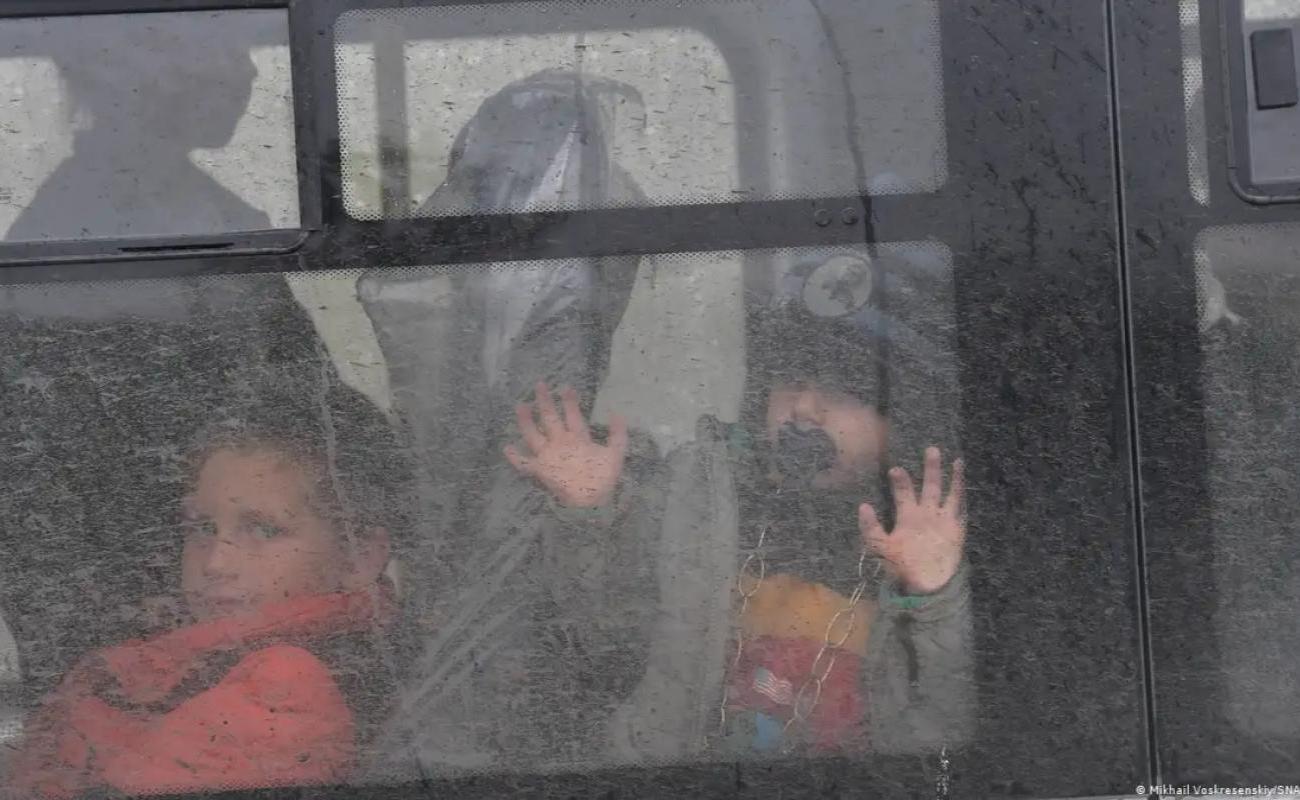Return of children deported to the Russian Federation: expensive and dangerous

Thousands of Ukrainian children were deported to Russia during the war, and where many of them are currently unknown. Experts told the European representatives what the international community should do in the fight against this crime.
The return home of a Ukrainian child who was illegally deported or forcibly relocated by the occupying Russian authorities costs from three to several tens of thousands of dollars. This was announced by the founder of the charitable organization Save Ukraine, former presidential commissioner for children's rights Mikola Kuleba, who participated in the meeting of the European Parliament's subcommittee on human rights on November 13. At the meeting, the topic "Forcible displacement and deportation of Ukrainian children: response and accountability measures" was raised.
About 20,000 Ukrainian children were deported
"Finding and returning a child is expensive. It depends on how long the official representatives or relatives of the child will be forced to stay on Russian territory, how long Russia blocks the return process. Many things are very confidential and I cannot talk about them," Kuleba said. , answering questions from MEPs about the financing of Save Ukraine activities.
The human rights defender also pointed out that his organization is considered "terrorist" in Russia. "Because, as the Russian media write, we are 'abducting children from new Russian territories,'" said Kuleba.
According to him, Save Ukraine managed to return home 200 Ukrainian children who were illegally taken by the Russians.
However, there is no accurate data on how many children were deported to Russia or taken to the Ukrainian territories occupied by the Russians.
"According to the official information of the Ukrainian side, by November 9, 2023, that figure was 19,500 children," noted Anna-Karin Krokstede, Deputy Head of the Department for Ukraine of the European External Action Service, who participated in the discussion.
At the same time, she emphasized, these data do not specify how many Ukrainian children were displaced, how many were deported, and how many were accompanied by parents or relatives.
Krokstede said that Russia should be held accountable for the crime of child deportation and reminded that the EU had imposed sanctions against 39 Russians who were involved in it. She also reported that EU Special Representative for Human Rights Eamon Gilmore and EU Ambassador to Kyiv Katarina Maternova intend to participate in the humanitarian initiative Bring Kids Back UA, the purpose of which is to unite the efforts of Ukrainian authorities, international partners and non-governmental organizations. organization for the repatriation of Ukrainian children abducted by Russia.
The state machine of the Russian Federation against the Ukrainian identity
Meanwhile, Russian authorities, especially Maria Lvova-Belova, the representative of the Russian president for children's rights, declare that the Russians have taken 740,000 minors out of Ukraine. According to Mikola Kuleba, the Russian authorities are implementing a purposeful policy of re-educating Ukrainian children. In special camps, children taken from Ukraine "are forced to listen to Russian propaganda and false stories about Ukraine, they do not hear the Ukrainian language, instead they are played the Russian national anthem for hours, and teenagers are involved in militarized youth movements," said the human rights defender. "The state machine of the Russian Federation is working to erase the Ukrainian identity of these children," Kuleba said.
In April of this year, the Parliamentary Assembly of the Council of Europe adopted a resolution stating that the deportation of Ukrainian children by Russia has the characteristics of a crime of genocide. However, according to the founder of Save Ukraine, the situation with child abduction has not changed since then. He called on EU countries to increase diplomatic pressure on Russia and "use their voices to condemn its actions against Ukrainian children as genocide."
Public exposure and diplomacy behind the scenes
In the past two years, a rather large gap has appeared between the international statements of various institutions and the effectiveness of their actions, admitted Andreas Umland, an analyst at the Stockholm Center for East European Studies of the Swedish Institute of International Relations, who participated in the subcommittee meeting.
In his opinion, two strategies can yield results in locating Ukrainian children and bringing them home. One of them is "blame and shame" - accusing and shaming representatives of the Russian authorities for criminal acts against children, which are prohibited by international law.
The second is behind-the-scenes diplomacy, which allows neutral international and religious organizations to be involved in the child return process as mediators. Umland also points out that "quite unexpectedly" countries like Turkey, Saudi Arabia and Qatar have become mediators in facilitating the return of Ukrainian children from Russia.
According to Umland, international sanctions against persons and institutions involved in the abduction and Russification of children from Ukraine should be expanded. In addition, international partners should make efforts to create a registry that will help determine the whereabouts of children, because "due to the war, Ukraine currently has limited resources to do this on its own." The expert called on the parliaments of countries and international organizations, especially the UN, to adopt special resolutions condemning the crime of child deportation.
